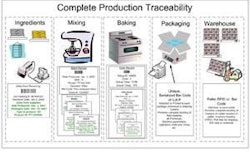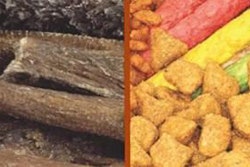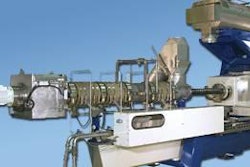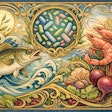The effects of fiber type on nutrient digestibility, fermentative end-products and fecal microbial populations were studied in 12 young adult male cats that received a diet containing either 4% cellulose, fructooligosaccharides (FOS) or pectin.
Fecal indole concentrations increased when cats were supplemented with FOS. Fecal acetate, propionate and total short-chain fatty acid concentrations increased in pectin-supplemented cats. Fecal butyrate, isobutyrate, isovalerate, valerate and total branched-chain fatty acids + valerate concentrations increased with supplementation of FOS and pectin. Fecal cadaverine and tryptamine concentrations increased with supplementation of FOS and pectin. Fecal tyramine concentrations decreased in FOS-supplemented cats, while spermidine concentrations increased in pectin-supplemented cats.
Fecal concentrations of putrescine and total biogenic amines increased with both FOS and pectin. Fecal Bifidobacterium spp. concentrations increased and E. coli concentrations decreased in FOS-supplemented cats. Fecal concentrations of Clostridium perfringens, E. coli and Lactobacillus spp. also increased in pectin-supplemented cats.
In addition to increasing populations of protein-fermenting microbiota, pectin increased production of fermentative end-products associated with carbohydrate compared with protein fermentation. Pectin and FOS may be useful fiber sources in promoting intestinal health of the cat.
Source : K.A. Barry et al., 2010. Dietary cellulose, fructooligosaccharides and pectin modify fecal protein catabolites and microbial populations in adult cats. J. Anim. Sci. 88:2978-2987. doi: 10.2527/jas.2009-2464


















